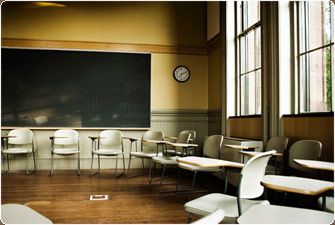
Teaching for Social Justice
Enhancing Communication, Improving School Climate
Saturday, October 4
8:30 AM - 4:00 PM
105 Teachers College Hall, City Campus.
More information contact Sarah Thomas sarah.thomas@unl.edu
UNL’s Secondary English Education Program, supported by a University-wide Departmental Teaching Award, the Canary Fund and the Malaika Foundation is proud to offer an interactive professional development workshop in which racial literacy and teaching for social justice are explored.
Distinguished visiting scholars, Dr. Howard Stevenson of the University of Pennsylvania, Dr. Valerie Adams-Bass of Arcadia University and Dr. Keisha Bentley-Edwards of the University of Texas-Austin will provide a plenary address and facilitate subsequent break out sessions.
RSVP at http://www.signupgenius.com/go/10c0d49afad2ca1f49-teaching.
The workshop is designed for:
• Interested UNL Faculty/Grad Students
• Secondary Ed Pre-Service Teaching Cohorts
• Secondary MA + Programs
• In-Service English Teachers/Administrators
• English Ed Program Graduates
• Interested Foundations Students
— A G E N D A —
8:30 a.m. Continental Breakfast
9-10 a.m. Morning Plenary Session
Visiting Scholars’ Keynote Address:
What does “teaching for social justice” look like at the classroom level; the intra and interpersonal communication levels?
What forms of literacies are needed to be effective teachers in diverse contexts? How can enhanced racial literacy promote student investment and efficacy?
10-10:15 a.m. Break
10:15 a.m.-Noon First Break Out Session: Visiting scholars, Dr. Stevenson, Dr. Bentley-Edwards, and Dr. Adams-Bass each facilitate separate groups
Noon-1 p.m. Lunch (on your own)
1-2 p.m. Local Perspectives Panel
Distinguished Panelists:
Focus Question: Informed by your leadership experiences and commitment to advancing social justice in your communities, what perspectives/strategies/insights might you offer developing teachers? Specifically, what advice would you give to educators that may enhance their interpersonal communication and relational abilities with diverse youth?
Mr. Thomas Christie, Multicultural School/Community Administrator for the Lincoln Public Schools
Mr. Andre Fortune, Director of OASIS (The Office of Academic Success and Intercultural Studies) and the Jackie Gaughan Multicultural Center (JGMC) at the University of Nebraska-Lincoln
Ms. Karen Kassebaum, Director of Recruiting for UNL’s College of Education and Human Sciences
Dr. Sara Mata, Assistant Director of OASIS (The Office of Academic Success and Intercultural Studies) and the Jackie Gaughan Multicultural Center (JGMC) at the University of Nebraska-Lincoln
Mr. Ricky Smith, Urban League Program Director of Youth and Education
2-2:15 p.m. Break
2:15-3:30 p.m. Second Break Out Session: Literature Discussions
Drawing from Dr. Stevenson’s recently published book, Promoting Racial Literacy in Schools and other recommended readings (TBD), workshop participants will adjourn to surrounding conference rooms to have smaller group literature discussions and debrief the workshop experience. Volunteer faculty/graduate students/English teachers will serve as discussion facilitators for each small group.
3:30-4 p.m. Return to Auditorium for Closing Remarks/Workshop Survey
Additional Public Info:
Dr. Howard Stevenson:
Dr. Stevenson is professor of education and Africana studies and former chair of the Applied Psychology and Human Development Division in the Graduate School of Education at the University of Pennsylvania. From 1994 to 2002, he was faculty master of the W. E. B. DuBois College House at Penn. In 1993, Dr. Stevenson received the W. T. Grant Foundation’s Faculty Scholar Award, a national research award given to only five researchers per year which funds five years of research. In 1994, Dr. Stevenson was a Presidential Fellow at the Salzburg Seminar in American Studies, where 35 other community activists and researchers from 30 countries to present their community health intervention projects. In 1995, Dr. Stevenson served on a 12-member academic panel to consult on the development of a National Strategic Action Plan for African-American Males, sponsored by the National Drug Control Policy Office in the Office of the President. Dr. Stevenson has served for 28 years as a clinical and consulting psychologist working in poor rural and urban neighborhoods across the country.
Dr. Valerie Adams-Bass:
Dr. Adams-Bass earned her doctorate at the University of Pennsylvania in the field of Interdisciplinary Studies and Human Development, attended the University of KwaZulu Natal in Durban, South Africa as a Postgraduate student, and earned her Masters of Education from Temple University in Culture Communication and Media Studies. Dr. Adams-Bass is New York’s 4-H Youth Development Program leader and assistant director of Cornell Cooperative Extension (CCE). Dr. Adams-Bass plans, delivers and evaluates 4-H, the youth component of CCE, supported by staff in 57 counties and New York City and thousands of volunteer leaders across the state. She links extensive county-level programs with the research-based resources of Cornell’s College of Agriculture and Life Sciences and College of Human Ecology and Urban Education. Dr. Adams-Bass earned a recent position in the Counseling Psychology Department at Arcadia, University in Philadelphia, Pennsylvania.
Dr. Keisha Bentley-Edwards: Assistant Professor of Human Development, Culture, and Learning Sciences at the University of Texas-Austin, Dr. Bentley-Edwards’ research has focused on how cultural strengths can be used as a source of resilience by minimizing the negative outcomes related to racism stress, violence and aggression, and school/community stressors for youth. Dr. Bentley-Edwards has co-developed measurements of racial/ethnic socialization and racial cohesion, primarily in the Black community, and used these culturally relevant assessments to ascertain their influence on youth health, social and academic outcomes. Examining the racialized experiences and socialization of White youth to better understand their influences on interactions with people of color is another research focal point. Emerging research will examine the sociocultural factors related to bullying behavior and victimization.
More details at: http://www.signupgenius.com/go/10c0d49afad2ca1f49-teaching